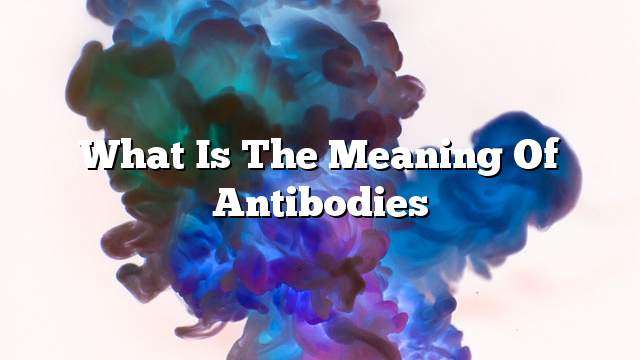Humoral immunity
Humoral Immunity is defined as an immune response responsible for protecting the extracellular spaces by producing antibodies, whose task is to destroy microorganisms present in the extracellular region Which cause infection, such as Bacteria and other infections, and prevent intracellular infections.
Production of antibodies
Antibody-Secreting Plasma Cells are produced by antibodies called B cells. These cells are activated and differentiate into antibody-secreting plasma cells as a result of the antibody binding of Antigen, In the receptors on B cells, and may need to complete this process to the presence of another type of immune cells called helper T cells (helper T Cell).
Antigen generators
Antigens – also called antigens – are generally known as any foreign substance that triggers an immune response. The antibody contains a specific part that is identified by the antibody. This is called the Epitope or specific Antigenic determinant, which consists of a series of amino acids (Amino Acid) three-dimensional and consists of five to eight amino acids.
Mechanism of action of antibodies
Antibodies are made up of large proteins with three axes attached to a central point. These antibodies are associated with antigens on the surface of the microorganisms that invade the body. Their association with antigen leads to the prevention of microorganisms from multiplying or entering the cells of the body. One of the large-scale immune cells called macrophages is to look for these antibodies and then ingest them.
Types of antibodies
The type of antibody produced by B cells may vary depending on the type of antigen present, and on the presence or absence of T-cells. This is useful in the immune response. The presence of different types of antibodies contributes to the fight against certain types of antibody Best. The following are the most important types of antibodies:
- IgG-type antibodies: Its main functions are Toxins and bacteria, as well as antibody generators to be synthesized by phagocytic cells and Neutrophils, and are responsible for Neonatal Immunology; Because these antibodies have the ability to penetrate placenta (Placenta), they are also responsible for activating the Complementary System.
- IgA-type antibodies: They are produced in the form of antibodies, which are responsible for maintaining mucosal immunity such as the Gastrointestinal Tract and Respiratory Tract, as they neutralize the effect of toxic substances and bacteria present there.
- IgE-type antibodies: In addition to its role in controlling helminths, helminths are also responsible for binding to metastatic receptors (mast cells), leading to the secretion of intermediates from these cells, causing the allergic reaction in the cells. the body.
- IgM-type antibodies: These antibodies are receptors of the antibodies found on the lymphocytes of Naive B lymphocytes. They are also responsible for the activation of the complementary immune system, and are produced in the form of pentacles of antibodies.
- IgD-type antibodies: These antibodies are receptors of antigen generators on non-adult B lymphocytes.
Hypersensitivity reactions of Type II
Type II Hypersensitivity is a type of immune reaction that relies mainly on the improper production of IgG and IgM antibodies, as well as the role of the complementary immune system, phagocytic cells, and other immune cells In this type of hypersensitivity. In this case, several types of tissues and organs of the body can be found. In the cases of the second type of hyperhidrosis, antibody generators are self-made substances, either from the body itself or, in some cases, external substances that have the ability to bind to the surface of the body’s cells. Several types of hypersensitivity reactions, such as Antibody-Dependent Cell-Mediated Cytotoxicity, require the coverage of cells targeted by IgG antibodies, following which lymphocytes : Lymphocytes or large macrophages in the receptors on their surface, so that the cells are decomposed. It is important to know that the treatment of these cases of hypersensitivity is using anti-inflammatory drugs, or Immunosuppressive Agents.
Examples of this type of hypersensitivity include:
- Hemolytic anemia (drug-induced hemolytic anemia).
- Granulocytopenia (granulocytopenia).
- Platelet insufficiency (Thrombocytopenia).
